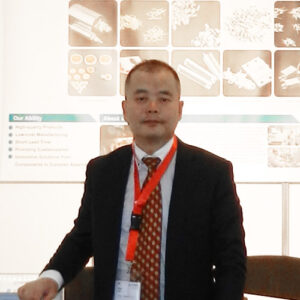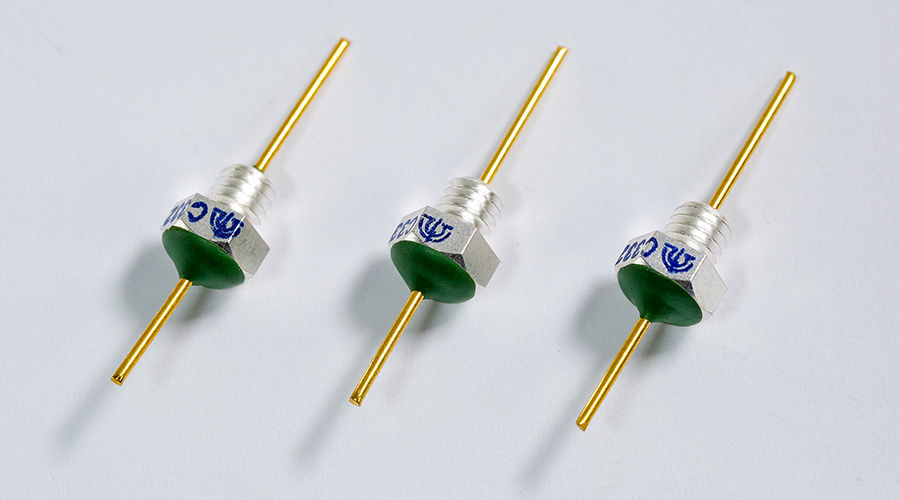Pulse capacitors with polypropylene film material as dielectric and high energy storage density are often called high energy storage pulse capacitors or polypropylene film capacitors. This kind of capacitor is always produced by metallized polypropylene film material in a roll formed structure, with the polypropylene film as the capacitor dielectric and the evaporated metal Al film as the capacitor electrodes. It has many advantages, such as non-polarity, high insulation resistance, excellent frequency response and low dielectric loss. Therefore in the large-capacity, high-voltage and fast-discharge field, it has a wide range of applications.
The Difference With Other Power Capacitors
Structure and Material
High energy storage pulse capacitors use vacuum evaporated Al film (or Al foil) as the electrode plate, and electro technical grade high purity plastic film (such as polypropylene) as the dielectric. This structure gives them non-polarity, high insulation resistance and excellent frequency characteristics.
In contrast, other pulse capacitors (e.g., electrolytic capacitors, ceramic capacitors) use different dielectric and electrode materials, which cause them different in performance and application.
Performance Characteristics
Polypropylene film capacitors have low dielectric loss, wide frequency response, and high stability for both high and low frequency circuits.
Electrolytic capacitors, although large in capacitance, have poor frequency response and are polarity limited.
Ceramic capacitors are small and low cost, but less stable and reliable than film capacitors.
Advantages
1. Low loss: polypropylene film capacitors dielectric loss angle tangent (tanδ) is very low, the loss in the AC circuit is very low, which helps to improve efficiency, especially apply to high-frequency applications.
2. High stability: The capacitance of polypropylene film capacitors varies very little with the influence of temperature and time, which means it can provide stable performance in a variety of environmental conditions, especially apply to high stability applications.
3. High Ripple Current Tolerance: Polypropylene film capacitors can withstand high ripple currents an in power supply circuits, apply to applications that require a smooth output voltage.
4. Self-healing characteristics: metallized polypropylene film capacitors have good self-healing characteristics. When the dielectric is punctured, the arc generated at the puncture will cause the metallized film to melt and evaporate, thus eliminating the short circuit and restoring normal operation, which improves the reliability and service life of the capacitor.
5. Nonpolar characteristics: Polypropylene film capacitors have no polarity and can be connected to circuits at will, which can simplify the circuit design.
6. High insulation resistance: polypropylene film capacitors have high insulation resistance, small leakage current, which means the circuit would be safe and reliable.
7. Good high-frequency characteristics: polypropylene film capacitors have low impedance, causing excellent high-frequency characteristics, which means it can work properly at higher frequencies. They apply to high-frequency circuits and pulse circuits.
8. Large capacitance: Polypropylene film capacitors can be made into large-capacitance products, apply to applications that require large energy storage.
9. Excellent frequency characteristics: polypropylene film capacitors have a wide frequency response, apply to both high and low frequency circuits, and can ensure accurate signal transmission.
Disadvantages
1. Higher cost: Comparing to other types of capacitors, polypropylene film capacitors have a higher cost, which may limit their use in cost-sensitive applications.
2. Relatively large size: Although polypropylene film capacitors can be made into miniaturizedproducts, they are still larger than electrolytic capacitors with the same capacitance in the low-voltage segment, which may affect their use in space-constrained applications.
3. Severely affected by high temperatures: Polypropylene film capacitors are severely affected by high temperatures (temperatures exceeding 120°C), which affects their performance and life time. Therefore, polypropylene film capacitors are not suitable for use at high temperatures.
Attention To The Selection Of Products
1. Rated voltage: Selecting the capacitors should take the rated voltage into consideration. The working voltage should be ensured less than 80% of the rated voltage value to improve the reliability.
2. Capacitance and frequency: Select capacitors with an appropriate capacitance and frequency response can make sure the capacitors meet the requirements of the circuit.
3. Working environment: Take the working environment of the capacitors into consideration, such as temperature, humidity, etc. Select capacitors that can adapt to these environments.
4. Temperature rise: Temperature rise refers to the temperature change of the capacitor’s shell during normal operation. Capacitors with small temperature rise and good heat dissipation should be selected to ensure long-term stable operation.
The Fields Of The Application
Polypropylene film capacitors are widely used in many industrial fields:
- Laser field: such as laser beam equipment, flash lamps
- Medical field: such as defibrillators, X-ray machines, shock treatment, cancer treatment equipment.
- High-energy laboratories: Marx Generator.
- Energy field: high current or energy discharge application, energy storage.
- Industrial controls: magnetizingand demagnetizingmachines, metal forming.
- Defenseapplications: radar systems, rail guns, explosive materials and explosives.





